#Tech Innovations
Text




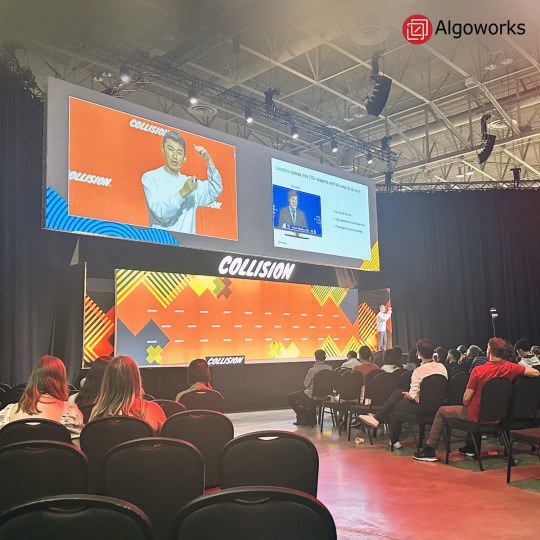
Attended Collision Conf 2024! 🚀 Check out the glimpses of this incredible event!
#collision conf#collision conference 2024#tech conference#tech trends#tech innovations#algoworks#tech networking#collision toronto#future of tech
2 notes
·
View notes
Text
Explore how artificial intelligence is set to transform cloud migration in 2024. This blog post discusses the role of AI in streamlining migration processes, enhancing data management, and optimizing cloud strategies. Discover how AI-driven tools and techniques can make cloud transitions smoother, more efficient, and less disruptive.
#Cloud Migration#AI in Cloud Computing#2024 Technology Trends#Artificial Intelligence#Cloud Strategy#Data Management#AI Tools#IT Transformation#Migration Efficiency#Tech Innovations
0 notes
Text

"World Wide Web Day" #trending#viral
Celebrate World Wide Web Day by understanding its profound impact on our daily routines, communication, and access to information. This dives deep into why World Wide Web Day is celebrated globally, exploring how it has revolutionized how we live, work, and connect. From facilitating instant communication to providing a wealth of knowledge at our fingertips, the World Wide Web has become an indispensable part of modern life. Join us as we uncover surprising facts and historical milestones that highlight the significance of this pivotal innovation. Discover how the web has shaped various aspects of society, from education and commerce to entertainment and social interactions.
Call: 7799799221
Website: www.manasadefenceacademy.com
#WorldWideWebDay#WebDayImportance#InternetRevolution#CelebrateWebDay#TechHistory#WebImpact#DigitalTransformation#WebMilestones#TechCelebration#GlobalConnectivity#trending#viral#manasadefenceacademy
#World Wide Web Day#Web Day Importance#importance of World Wide Web Day#celebrate World Wide Web Day#internet revolution#web impact#tech history#digital transformation#web milestones#global connectivity#internet significance#World Wide Web celebration#web history#impact of internet#importance of web day#internet evolution#World Wide Web significance#web day facts#tech innovations#web advancements#digital age#communication revolution#internet facts#web day events#global internet day#World Wide Web facts#web day impact#celebrate internet#World Wide Web journey#tech advancements
0 notes
Link
#Army of the Tread#Electric Vehicles#Self Driving#Autopilot#EV Community#Future of Driving#Tech Innovations#Sustainable Living#Smart Mobility
0 notes
Text
youtube
#5G#6G#Technology evolution#Network infrastructure#Tech innovations#Pros and cons of 5G#Pros and cons of 6G#Future of connectivity#Wireless technology#Mobile networks#5G vs 6G#Internet of Things (IoT)#Smart cities#Youtube
0 notes
Text
Discover Top Web Development Companies on TrueFirms | Staff Augmentation Marketplace
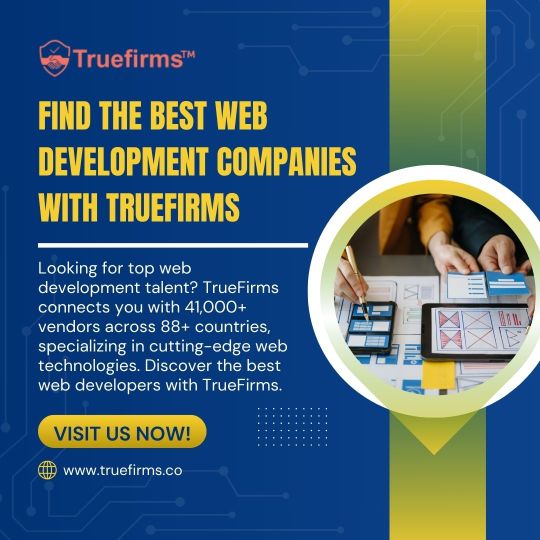
Looking for expert web developers? TrueFirms connects you with over 41,000 vendors globally, specializing in cutting-edge web technologies. Explore detailed vendor profiles, client reviews, and ratings to find the perfect fit for your web development needs. Whether you're building a new website or enhancing an existing one, TrueFirms ensures a streamlined hiring process. Transform your web projects with confidence. Visit TrueFirms today!
#Web Development Resources#Business Solutions#Tech Innovations#Hiring Strategies#Project Management#truefirms#hire developers#web development#top web development companies#website development#web development services#web development company#web development agency#hire developer on contract in india
1 note
·
View note
Text
100W Wireless Charger For iPhone
🚀✨ New Blog Post Alert! ✨🚀
🔋 Exciting News! Check out my new blog post on the 100W Wireless Charger for iPhone. Say goodbye to slow charging with this sleek gadget!
#WirelessCharger #iPhoneAccessories #FastCharging #TechGadgets #GadgetReviews

View On WordPress
#100W Charger#Apple Accessories#Charging Solutions#Charging Technology#Fast Charging#Gadget Reviews#iPhone Accessories#iPhone Charger#Mobile Charger#Quick Charge#Smartphone Accessories#Tech Gadgets#Tech Innovations#Wireless Charger#Wireless Charging Pad
0 notes
Text
Oppo और Vivo को गुरुघंटाल बनाने आ रहा है OnePlus का धाकड़ स्मार्टफोन, फीचर्स हुआ लीक
OnePlus Ace 3 स्मार्टफोन बाजार में तहलका मचाने को तैयार है, जो अपने अभूतपूर्व फीचर्स के साथ Oppo और Vivo जैसे ब्रांडों को टक्कर देने आ रहा है। इस फोन के अनावरण से पहले ही, इसके शानदार स्पेसिफिकेशन्स और नवीनतम तकनीकी सुविधाओं की जानकारी लीक हो गई है, जो ग्राहकों के बीच उत्सुकता को और बढ़ा रही है। वनप्लस ऐस 3 न केवल आकर्षक डिजाइन प्रदान करता है, बल्कि उच्च-क्षमता वाले प्रोसेसर, उन्नत कैमरा सिस्टम…

View On WordPress
#1.5K Display#Android 14#December Launch#Fast Charging#High Refresh Rate#Hindi Jankari#hindi mobile specifications#hindi news#Latest mobile news hindi#LPDDR5x RAM#LTPO Panel#OLED Curved Edge#OmniVision Lenses#OnePlus 2023#OnePlus Ace 3#OnePlus News#Snapdragon 8 Gen 2#Sony IMX890#Tech Innovations#Triple Camera Setup#UFS 4.0 Storage#Upcoming Smartphones
0 notes
Video
youtube
Amazing Tech Innovations of the Future || Ten Facets Lab
0 notes
Text
Unleash Tomorrow: Exploring Transformative Tech Innovations
Introduction: A Glimpse into the Future
Step into the world of tech innovations, where imagination meets reality to shape the future. In this journey, we'll delve into the active substances that define tech innovations, explore their profound impact on society, and reveal why embracing these advancements isn't just an option—it's a powerful way to unlock unprecedented possibilities for a better tomorrow.
The Pillars of Tech Innovations: Pioneering the Future
Artificial Intelligence: Dive into the active substances of artificial intelligence. Discover how AI is revolutionizing industries, from healthcare to finance, and leading us into a new era of automation and data-driven decision-making.
Internet of Things: Immerse yourself in the active substances of the Internet of Things (IoT). Explore how interconnected devices are transforming the way we live, work, and interact with our environment.
Blockchain Technology: Uncover the active substances of blockchain technology. Delve into its potential to enhance security, transparency, and trust across various sectors, including finance and supply chain management.
Biotechnology: Choose the active substances of biotechnology. Explore how breakthroughs in genetic engineering, personalized medicine, and bioinformatics are revolutionizing healthcare and improving lives.
Renewable Energy Tech: Embrace the active substances of renewable energy tech. Learn how advancements in solar, wind, and other sustainable energy sources are driving the transition to a greener and more sustainable future.
Why Choose Tech Innovations: Transforming Lives
Progressive Solutions: Choose tech innovations for progressive solutions. The active substances empower us to tackle complex challenges with innovative and transformative technologies.
Enhanced Efficiency: Embrace tech innovations for enhanced efficiency. The active substances lead to streamlined processes, reduced resource consumption, and optimized performance.
Global Connectivity: Choose the active substances that foster global connectivity. Tech innovations bridge geographical gaps, enabling communication and collaboration on a global scale.
Empowering Creativity: Embrace tech innovations for empowering creativity. The active substances provide tools and platforms that unleash human ingenuity and fuel artistic expression.
Future Evolution: Choose tech innovations for a future of evolution. By embracing the active substances, we shape the trajectory of human progress and pave the way for generations to come.
Experience the Transformation: Embrace Tech Innovations Today
Are you ready to be part of shaping a future where technology redefines what's possible? Tech innovations aren't just inventions—they're pathways to an extraordinary future. Join the movement that recognizes that the active substances of tech innovations hold the key to a world where creativity, efficiency, and connectivity redefine our possibilities.
References:
Wikipedia - Technology Innovation
Conclusion: Forge Your Path into Tomorrow
In a world where innovation is the driving force, tech innovations stand as the cornerstone of progress. Their active substances—AI, IoT, blockchain, biotechnology, and renewable energy tech—merge to create a blueprint for a world where creativity knows no bounds. Make the choice that aligns with your vision of a future empowered by technology—choose tech innovations and embark on a journey of discovery, transformation, and a future where our actions reshape the world. Your path to a brighter future starts with embracing tech innovations today.
"For expert insights, resources, and community support, our website is your ultimate destination."
0 notes
Text
#AI-powered tools#Chrome browser extensions#Digital marketing solutions#Tech innovations#Boost productivity#Streamline workflows#Automation made easy#Enhanced marketing strategies#Cutting-edge technology#Empower digital marketers#Stay ahead of the competition#Smart marketing tools#Effortless optimization#Revolutionary extensions#Unleash creativity#Data-driven decisions#Simplify marketing tasks#Amplify online presence#Drive business growth#Transform digital campaigns
0 notes
Text
Seven Business and Tech Firsts
The world’s first billionaire was John D. (Davison) Rockefeller; his net worth officially passed $1 billion on September 29th, 1916.
In 1870, he founded the Standard Oil Company, becoming an American industrialist, philanthropist, and petroleum industry icon. As gasoline’s importance grew, so did Rockefeller’s empire; he bought out smaller oil companies, eventually controlling more than 90…

View On WordPress
#business firsts#business innovations#business product debuts#origins of business items#origins of business products#origins of tech items#origins of tech products#tech firsts#tech innovations#tech item debuts
0 notes
Text


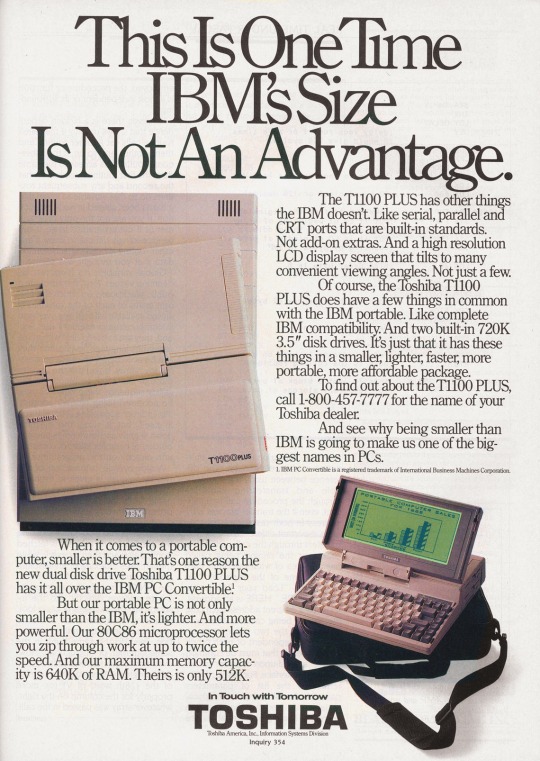


🇯🇵 Unveiling the Toshiba T1100: A Journey into the Dawn of Portable Computing!
💻 In the early 1980s, a revolutionary device emerged, transforming the landscape of personal computing forever. The Toshiba T1100, released in 1985, marked a significant milestone in the history of portable computers. The Toshiba T1100 has subsequently been described by Toshiba as "the world's first mass-market laptop computer".
🌐 The Toshiba T1100 was among the first truly portable computers, designed for professionals and enthusiasts seeking computing power on the go. Weighing approximately 4.1 kilograms (9 pounds) with its lead-acid battery, this innovative machine provided users with unprecedented mobility.
⚙️ Equipped with an Intel 80C88 processor running at 4.77 MHz and boasting 256 KB of RAM, the Toshiba T1100 offered impressive computing capabilities for its time. Its 9.6-inch monochrome LCD screen provided a crisp display, while the detachable keyboard enhanced usability.
💾 The T1100 introduced several innovative features, including a built-in 3.5-inch floppy disk drive—a rarity at the time—which allowed for data storage and transfer with ease. This model also featured MS-DOS as its operating system, providing a familiar computing environment.
📈 The Toshiba T1100 set a new standard for portable computing, demonstrating the feasibility and practicality of laptops for business and personal use. Its success paved the way for subsequent generations of laptops, influencing the evolution of mobile computing worldwide.
👨💻 For professionals in various industries, the Toshiba T1100 represented a game-changer, enabling efficient data management, word processing, and spreadsheet tasks on the move. Its portability and functionality empowered users to work beyond traditional office environments.
🌟 Today, the legacy of the Toshiba T1100 lives on in the sleek, lightweight laptops and notebooks that have become indispensable tools for modern professionals and digital nomads. This groundbreaking device remains a testament to Toshiba's commitment to innovation and excellence in the field of computing. The Toshiba T1100 remains an iconic symbol of the dawn of portable computing—a chapter in the ongoing story of technological progress that continues to shape our digital world.
#old technology#techtime chronicles#companies#tech#technology#old tech#technews#information technology#corporations#electronics#toshiba#t1100#toshiba t1100#laptop#laptops#portable computer#computer science#computing#computers#computer#hardware#software#1980s computers#1980s#innovation#made in japan#japan#retro tech#tech review#pc
190 notes
·
View notes
Text
Big Tech disrupted disruption
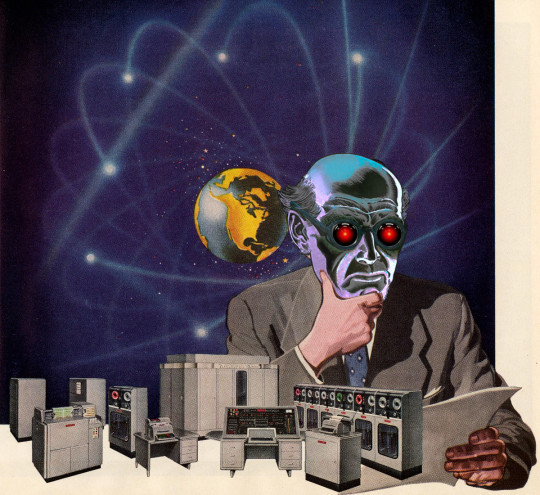
If you'd like an essay-formatted version of this post to read or share, here's a link to it on pluralistic.net, my surveillance-free, ad-free, tracker-free blog:
https://pluralistic.net/2024/02/08/permanent-overlords/#republicans-want-to-defund-the-police

Before "disruption" turned into a punchline, it was a genuinely exciting idea. Using technology, we could connect people to one another and allow them to collaborate, share, and cooperate to make great things happen.
It's easy (and valid) to dismiss the "disruption" of Uber, which "disrupted" taxis and transit by losing $31b worth of Saudi royal money in a bid to collapse the world's rival transportation system, while quietly promising its investors that it would someday have pricing power as a monopoly, and would attain profit through price-gouging and wage-theft.
Uber's disruption story was wreathed in bullshit: lies about the "independence" of its drivers, about the imminence of self-driving taxis, about the impact that replacing buses and subways with millions of circling, empty cars would have on traffic congestion. There were and are plenty of problems with traditional taxis and transit, but Uber magnified these problems, under cover of "disrupting" them away.
But there are other feats of high-tech disruption that were and are genuinely transformative – Wikipedia, GNU/Linux, RSS, and more. These disruptive technologies altered the balance of power between powerful institutions and the businesses, communities and individuals they dominated, in ways that have proven both beneficial and durable.
When we speak of commercial disruption today, we usually mean a tech company disrupting a non-tech company. Tinder disrupts singles bars. Netflix disrupts Blockbuster. Airbnb disrupts Marriott.
But the history of "disruption" features far more examples of tech companies disrupting other tech companies: DEC disrupts IBM. Netscape disrupts Microsoft. Google disrupts Yahoo. Nokia disrupts Kodak, sure – but then Apple disrupts Nokia. It's only natural that the businesses most vulnerable to digital disruption are other digital businesses.
And yet…disruption is nowhere to be seen when it comes to the tech sector itself. Five giant companies have been running the show for more than a decade. A couple of these companies (Apple, Microsoft) are Gen-Xers, having been born in the 70s, then there's a couple of Millennials (Amazon, Google), and that one Gen-Z kid (Facebook). Big Tech shows no sign of being disrupted, despite the continuous enshittification of their core products and services. How can this be? Has Big Tech disrupted disruption itself?
That's the contention of "Coopting Disruption," a new paper from two law profs: Mark Lemley (Stanford) and Matthew Wansley (Yeshiva U):
https://papers.ssrn.com/sol3/papers.cfm?abstract_id=4713845
The paper opens with a review of the literature on disruption. Big companies have some major advantages: they've got people and infrastructure they can leverage to bring new products to market more cheaply than startups. They've got existing relationships with suppliers, distributors and customers. People trust them.
Diversified, monopolistic companies are also able to capture "involuntary spillovers": when Google spends money on AI for image recognition, it can improve Google Photos, YouTube, Android, Search, Maps and many other products. A startup with just one product can't capitalize on these spillovers in the same way, so it doesn't have the same incentives to spend big on R&D.
Finally, big companies have access to cheap money. They get better credit terms from lenders, they can float bonds, they can tap the public markets, or just spend their own profits on R&D. They can also afford to take a long view, because they're not tied to VCs whose funds turn over every 5-10 years. Big companies get cheap money, play a long game, pay less to innovate and get more out of innovation.
But those advantages are swamped by the disadvantages of incumbency, all the various curses of bigness. Take Arrow's "replacement effect": new companies that compete with incumbents drive down the incumbents' prices and tempt their customers away. But an incumbent that buys a disruptive new company can just shut it down, and whittle down its ideas to "sustaining innovation" (small improvements to existing products), killing "disruptive innovation" (major changes that make the existing products obsolete).
Arrow's Replacement Effect also comes into play before a new product even exists. An incumbent that allows a rival to do R&D that would eventually disrupt its product is at risk; but if the incumbent buys this pre-product, R&D-heavy startup, it can turn the research to sustaining innovation and defund any disruptive innovation.
Arrow asks us to look at the innovation question from the point of view of the company as a whole. Clayton Christensen's "Innovator's Dilemma" looks at the motivations of individual decision-makers in large, successful companies. These individuals don't want to disrupt their own business, because that will render some part of their own company obsolete (perhaps their own division!). They also don't want to radically change their customers' businesses, because those customers would also face negative effects from disruption.
A startup, by contrast, has no existing successful divisions and no giant customers to safeguard. They have nothing to lose and everything to gain from disruption. Where a large company has no way for individual employees to initiate major changes in corporate strategy, a startup has fewer hops between employees and management. What's more, a startup that rewards an employee's good idea with a stock-grant ties that employee's future finances to the outcome of that idea – while a giant corporation's stock bonuses are only incidentally tied to the ideas of any individual worker.
Big companies are where good ideas go to die. If a big company passes on its employees' cool, disruptive ideas, that's the end of the story for that idea. But even if 100 VCs pass on a startup's cool idea and only one VC funds it, the startup still gets to pursue that idea. In startup land, a good idea gets lots of chances – in a big company, it only gets one.
Given how innately disruptable tech companies are, given how hard it is for big companies to innovate, and given how little innovation we've gotten from Big Tech, how is it that the tech giants haven't been disrupted?
The authors propose a four-step program for the would-be Tech Baron hoping to defend their turf from disruption.
First, gather information about startups that might develop disruptive technologies and steer them away from competing with you, by investing in them or partnering with them.
Second, cut off any would-be competitor's supply of resources they need to develop a disruptive product that challenges your own.
Third, convince the government to pass regulations that big, established companies can comply with but that are business-killing challenges for small competitors.
Finally, buy up any company that resists your steering, succeeds despite your resource war, and escapes the compliance moats of regulation that favors incumbents.
Then: kill those companies.
The authors proceed to show that all four tactics are in play today. Big Tech companies operate their own VC funds, which means they get a look at every promising company in the field, even if they don't want to invest in them. Big Tech companies are also awash in money and their "rival" VCs know it, and so financial VCs and Big Tech collude to fund potential disruptors and then sell them to Big Tech companies as "aqui-hires" that see the disruption neutralized.
On resources, the authors focus on data, and how companies like Facebook have explicit policies of only permitting companies they don't see as potential disruptors to access Facebook data. They reproduce internal Facebook strategy memos that divide potential platform users into "existing competitors, possible future competitors, [or] developers that we have alignment with on business models." These categories allow Facebook to decide which companies are capable of developing disruptive products and which ones aren't. For example, Amazon – which doesn't compete with Facebook – is allowed to access FB data to target shoppers. But Messageme, a startup, was cut off from Facebook as soon as management perceived them as a future rival. Ironically – but unsurprisingly – Facebook spins these policies as pro-privacy, not anti-competitive.
These data policies cast a long shadow. They don't just block existing companies from accessing the data they need to pursue disruptive offerings – they also "send a message" to would-be founders and investors, letting them know that if they try to disrupt a tech giant, they will have their market oxygen cut off before they can draw breath. The only way to build a product that challenges Facebook is as Facebook's partner, under Facebook's direction, with Facebook's veto.
Next, regulation. Starting in 2019, Facebook started publishing full-page newspaper ads calling for regulation. Someone ghost-wrote a Washington Post op-ed under Zuckerberg's byline, arguing the case for more tech regulation. Google, Apple, OpenAI other tech giants have all (selectively) lobbied in favor of many regulations. These rules covered a lot of ground, but they all share a characteristic: complying with them requires huge amounts of money – money that giant tech companies can spare, but potential disruptors lack.
Finally, there's predatory acquisitions. Mark Zuckerberg, working without the benefit of a ghost writer (or in-house counsel to review his statements for actionable intent) has repeatedly confessed to buying companies like Instagram to ensure that they never grow to be competitors. As he told one colleague, "I remember your internal post about how Instagram was our threat and not Google+. You were basically right. The thing about startups though is you can often acquire them.”
All the tech giants are acquisition factories. Every successful Google product, almost without exception, is a product they bought from someone else. By contrast, Google's own internal products typically crash and burn, from G+ to Reader to Google Videos. Apple, meanwhile, buys 90 companies per year – Tim Apple brings home a new company for his shareholders more often than you bring home a bag of groceries for your family. All the Big Tech companies' AI offerings are acquisitions, and Apple has bought more AI companies than any of them.
Big Tech claims to be innovating, but it's really just operationalizing. Any company that threatens to disrupt a tech giant is bought, its products stripped of any really innovative features, and the residue is added to existing products as a "sustaining innovation" – a dot-release feature that has all the innovative disruption of rounding the corners on a new mobile phone.
The authors present three case-studies of tech companies using this four-point strategy to forestall disruption in AI, VR and self-driving cars. I'm not excited about any of these three categories, but it's clear that the tech giants are worried about them, and the authors make a devastating case for these disruptions being disrupted by Big Tech.
What do to about it? If we like (some) disruption, and if Big Tech is enshittifying at speed without facing dethroning-by-disruption, how do we get the dynamism and innovation that gave us the best of tech?
The authors make four suggestions.
First, revive the authorities under existing antitrust law to ban executives from Big Tech companies from serving on the boards of startups. More broadly, kill interlocking boards altogether. Remember, these powers already exist in the lawbooks, so accomplishing this goal means a change in enforcement priorities, not a new act of Congress or rulemaking. What's more, interlocking boards between competing companies are illegal per se, meaning there's no expensive, difficult fact-finding needed to demonstrate that two companies are breaking the law by sharing directors.
Next: create a nondiscrimination policy that requires the largest tech companies that share data with some unaffiliated companies to offer data on the same terms to other companies, except when they are direct competitors. They argue that this rule will keep tech giants from choking off disruptive technologies that make them obsolete (rather than competing with them).
On the subject of regulation and compliance moats, they have less concrete advice. They counsel lawmakers to greet tech giants' demands to be regulated with suspicion, to proceed with caution when they do regulate, and to shape regulation so that it doesn't limit market entry, by keeping in mind the disproportionate burdens regulations put on established giants and small new companies. This is all good advice, but it's more a set of principles than any kind of specific practice, test or procedure.
Finally, they call for increased scrutiny of mergers, including mergers between very large companies and small startups. They argue that existing law (Sec 2 of the Sherman Act and Sec 7 of the Clayton Act) both empower enforcers to block these acquisitions. They admit that the case-law on this is poor, but that just means that enforcers need to start making new case-law.
I like all of these suggestions! We're certainly enjoying a more activist set of regulators, who are more interested in Big Tech, than we've seen in generations.
But they are grossly under-resourced even without giving them additional duties. As Matt Stoller points out, "the DOJ's Antitrust Division has fewer people enforcing anti-monopoly laws in a $24 trillion economy than the Smithsonian Museum has security guards."
https://www.thebignewsletter.com/p/congressional-republicans-to-defund
What's more, Republicans are trying to slash their budgets even further. The American conservative movement has finally located a police force they're eager to defund: the corporate police who defend us all from predatory monopolies.

Image:
Cryteria (modified)
https://commons.wikimedia.org/wiki/File:HAL9000.svg
CC BY 3.0
https://creativecommons.org/licenses/by/3.0/deed.en
#pluralistic#coopting disruption#law and political economy#law#economics#competition#big tech#tech#innovation#acquihires#predatory acquisitions#mergers and acquisitions#disruption#schumpeter#the curse of bigness#clay christensen#josef schumpeter#christensen#enshittiification#business#regulation#scholarship
290 notes
·
View notes
Text
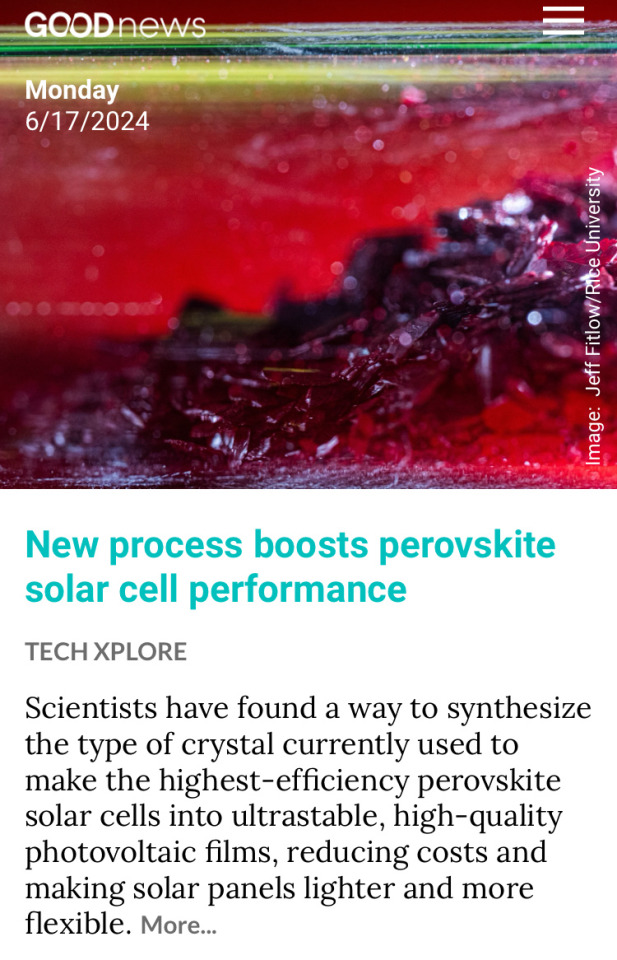
147 notes
·
View notes